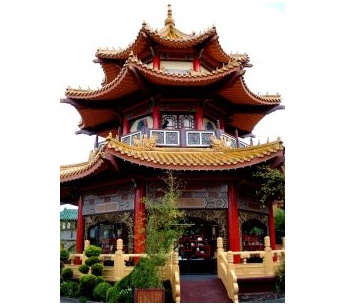 Hosting the Summer Olympics is an enormous feat that takes billions of dollars to orchestrate. Think about all of the things that must be built, from new venues, to housing, to television and media towers, to the medals themselves. But Beijing Olympics officials vowed from the very beginning to keep everything as frugal as possible for this Summer Olympics. The Beijing Organizing Committee of the 29th Olympic Games (BOCOG) wanted to make sure that there was a balance of income and expenditure, with maybe even a little profit. How can they do this?
Hosting the Summer Olympics is an enormous feat that takes billions of dollars to orchestrate. Think about all of the things that must be built, from new venues, to housing, to television and media towers, to the medals themselves. But Beijing Olympics officials vowed from the very beginning to keep everything as frugal as possible for this Summer Olympics. The Beijing Organizing Committee of the 29th Olympic Games (BOCOG) wanted to make sure that there was a balance of income and expenditure, with maybe even a little profit. How can they do this?
One of the big expenses for a country hosting the Summer Olympics, or any Olympics, really, is the cost of all of that building to accommodate the events, the athletes and the media. The BOCOG has negated this cost in some interesting ways. Many of the new facilities were self-financed by various enterprises that will own them once the Summer Olympics are over. Some facilities were sold even before they were constructed. The Olympic Village, for example, has already been sold out for commercial housing. As soon as the Summer Olympics residents move out, the new buyers move in.
Whenever possible, current sports venues are being used for the games. The BOCOG choose to transform or expand what was already available, rather than build new facilities. Any new sports venues were built at universities to ensure that they would continue to be used fully after the Summer Olympics games.
The BOCOG was committed to hosting the Summer Olympics frugally, and they made this their mission. There were strict procedures involved for approving expenditures. There is a large-sum expenditure team in place whose job it is to evaluate, assess and approve anything that costs more than 1 million yuan. The team is made up of staff from all five of the BOCOG’s various departments. The final cost to host the Beijing Summer Olympics is 2 billion U.S. dollars.
Click here for more articles by Mary Ann Romans.
Recession Giving Birth to More Frugals
Host a Summer Olympics Party at Home

